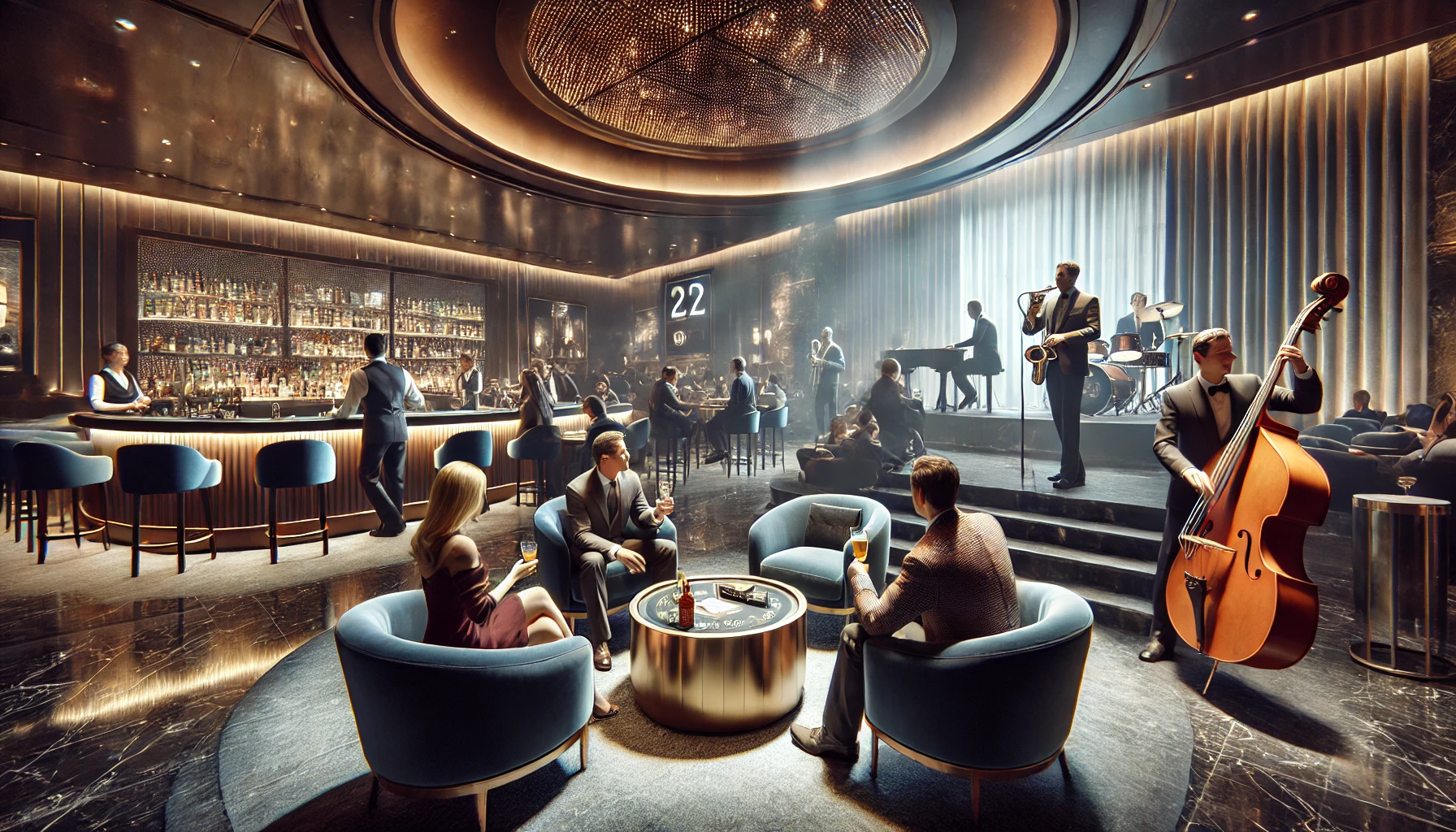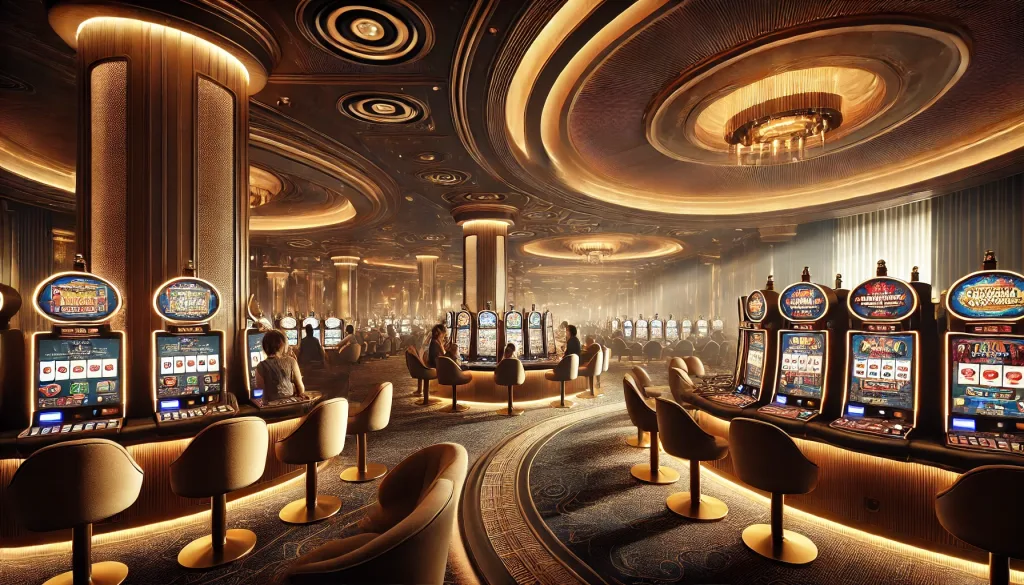How Music Influences Player Behaviour in Casinos: A Psychological Analysis

Music is more than background noise in a casino – it’s a calculated psychological tool that subtly shapes the actions of players. From tempo to tone, every note is chosen to influence mood, focus, and risk-taking tendencies. This article explores the multifaceted ways in which music impacts gamblers’ behaviour, using current psychological insights and data from real casinos in early 2025.
Music as a Mood Modulator in Casino Environments
One of the primary functions of music in casinos is to set the emotional tone. Studies conducted in European gaming halls in 2024 and early 2025 confirm that slower, soothing music tends to prolong player sessions. This is due to its calming effect, which encourages players to feel relaxed and less time-conscious. Conversely, fast-paced tracks can trigger excitement and increase the speed of betting activity.
Psychologists suggest that background music taps into the limbic system – the area of the brain responsible for emotion and behaviour. By manipulating this system, casinos can foster either tranquillity or stimulation, depending on what type of player activity they wish to encourage. For instance, during peak hours, many establishments opt for upbeat tracks to energise the floor and create a sense of lively urgency.
Data from casino operators in the UK and Denmark shows a 17% increase in table game participation when music is tailored to match peak mood patterns. This behavioural shaping isn’t accidental; it’s an intentional element of environment design aimed at enhancing player engagement while subtly guiding decision-making.
How Different Genres Influence Decision-Making
Not all music has the same effect. Classical and jazz genres are often used in high-stakes rooms to evoke a feeling of sophistication and calm. This ambiance tends to slow decision-making, which is preferred in games like poker or blackjack where strategic thought is crucial. By contrast, electronic and pop music dominates slot machine areas, promoting impulsivity and quicker bet cycles.
In 2025, several Scandinavian casinos experimented with genre rotation depending on the time of day and crowd composition. During lunchtime, for example, light acoustic sets were used to reduce overstimulation. After dark, rock and EDM took over to boost energy levels. Behavioural metrics from these trials indicated that genre selection influenced session length by up to 22%.
Moreover, personalised sound environments are gaining traction. With wearable tech like smart earbuds being tested in Finnish gaming lounges, music tailored to the player’s preferences is being streamed directly. Early results show this can increase comfort and encourage repeat visits, revealing a new frontier in music-based player psychology.
Volume, Tempo and Betting Behaviour
Volume and tempo significantly affect how players bet. Quiet environments with soft music often lead to more thoughtful, conservative betting, while louder, faster music creates a sense of urgency and can lead to riskier decisions. Recent psychological experiments in casino labs across the Netherlands and Germany have provided measurable support for this.
For example, players exposed to 120 BPM techno music were found to place 24% more bets per minute compared to those listening to 60 BPM ambient tracks. This illustrates a direct link between auditory stimulation and behavioural pacing. It’s no surprise that fast music is often deployed during time-limited promotional rounds or slot tournaments.
Volume also acts as a stimulant. A 2025 study conducted in Vienna revealed that slot players exposed to music at 75 decibels remained active 14 minutes longer on average than those listening at 55 decibels. However, excessively high volumes were shown to cause irritability and early exit, indicating the importance of balance in audio engineering.
The Psychological Effect of Repetition
Repetition is a core technique used in music design within gaming spaces. Repetitive beats and loops help to induce a trance-like state known as the “machine zone,” especially relevant in slot areas. This state is associated with increased dissociation, where the player loses track of time and money.
Sound engineers collaborating with casino brands in early 2025 are now refining these loops to be more seamless and immersive. By removing abrupt transitions and avoiding vocal interruptions, they help sustain player immersion without creating fatigue. The aim is to create a sound environment that is both engaging and subconsciously persuasive.
Interestingly, the use of repetition in music not only maintains attention but can also heighten perceived control. Gamblers report feeling more in sync with the game when rhythms are predictable, which may reduce stress and encourage continued play. This psychological alignment forms part of a broader strategy to deepen engagement without overt manipulation.

The Future of Music Psychology in Casinos
As AI and biometric tracking evolve, the future of casino music lies in dynamic adaptation. Casinos are beginning to experiment with real-time music adjustments based on heart rate, facial expression, and betting patterns. These experiments, particularly in high-tech venues in Estonia and Singapore, are setting the standard for next-generation audio environments.
In February 2025, a major Las Vegas casino launched a pilot programme using AI-driven music that responds to the emotional states of players. If a user appears frustrated, the system shifts to calmer tones to stabilise the mood. If enthusiasm spikes, the tempo increases to sustain the momentum. Early reports indicate increased dwell time and higher satisfaction ratings.
As casinos integrate more psychology-based design elements, music will become even more personalised. The long-term implication is a move from generalised ambiance to custom-tailored experiences for every player. While this raises ethical considerations, it also represents a significant step forward in human-centric casino design.
Ethical Implications and Player Wellbeing
With increased psychological influence comes the need for ethical oversight. While music can enhance entertainment value, it also has the power to nudge behaviour in ways that may not align with responsible gambling. As of 2025, regulatory bodies across the EU are beginning to draft guidelines regarding audio manipulation in casinos.
Transparency is a key issue. If players are unaware that music is designed to influence their choices, questions arise about informed consent. Advocates for player welfare argue that music strategy should be disclosed, much like odds or payout percentages. Responsible operators are already considering ways to incorporate audio ethics into their compliance frameworks.
Ultimately, the future of music in casinos lies in balance – between engagement and autonomy, stimulation and safety. As technology advances, the industry must commit to using these tools not only for profit but also for the enhancement of fair and responsible play. Music will always be a powerful tool – the key lies in how it’s used.
